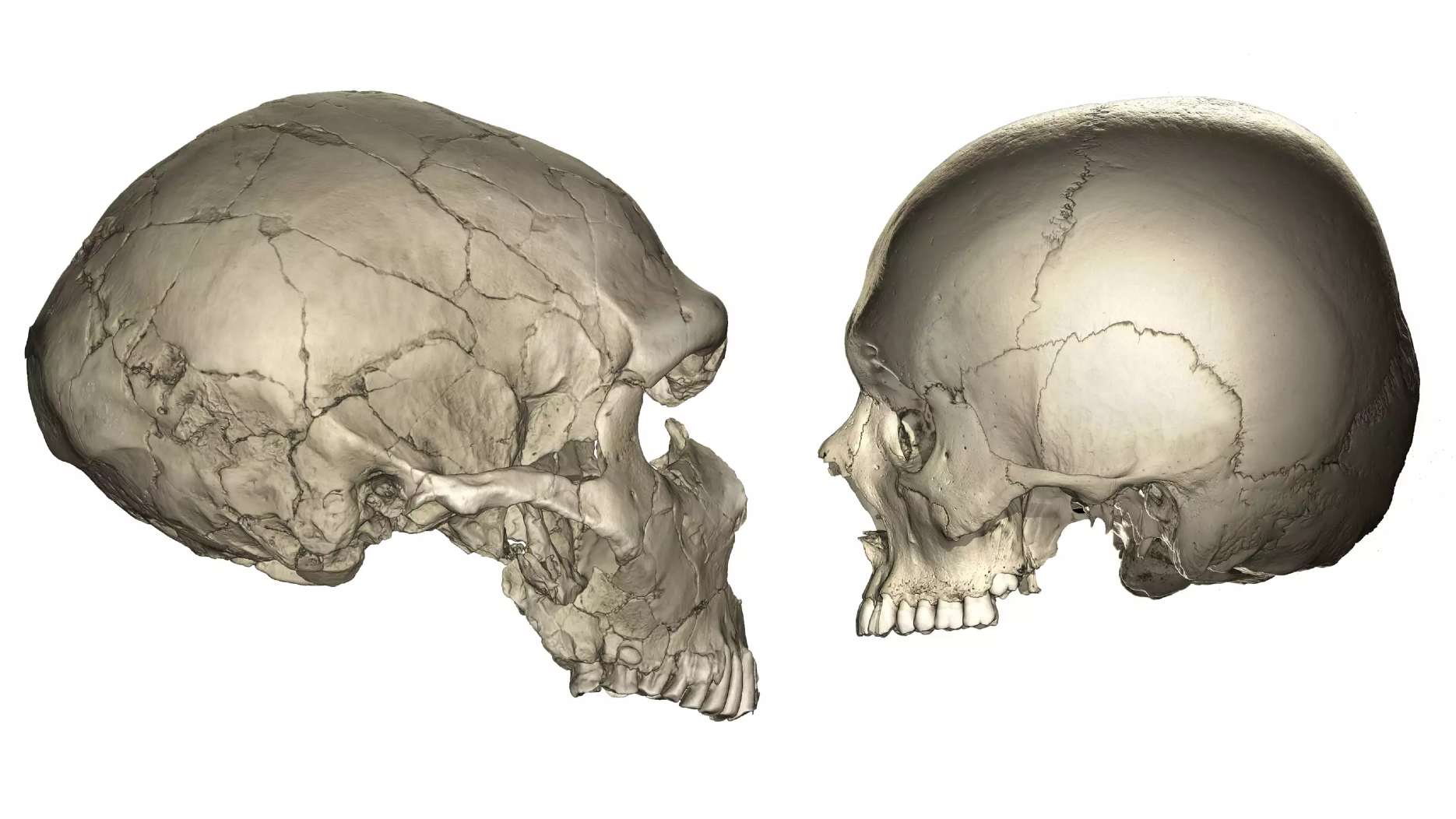
Modern humans have uniquely small and flat faces, especially compared with our Neanderthal cousins’ notoriously robust faces and large noses, but the reason for this difference has eluded paleoanthropologists. Now, researchers have determined that human faces grow slowly and stop growing during early adolescence, whereas Neanderthals’ faces kept growing into early adulthood.
“These two human species followed different developmental trajectories for their facial bones,” Alexandra Schuh, a postdoctoral researcher at the Max Planck Institute for Evolutionary Anthropology in Germany, told Live Science.
In a study published Monday (March 24) in the Journal of Human Evolution, Schuh and colleagues analyzed the midface region of 174 skulls of Homo sapiens, Neanderthals and chimpanzees. By including skulls from individuals throughout childhood and into adulthood, the researchers were able to investigate facial ontogeny — how the facial bones of the skull develop and grow.
The researchers used two techniques to closely examine the skulls. First, they created virtual 3D models of the skulls and digitized over 200 landmarks on the upper jawbone to look at patterns of growth and development. Then, they undertook microscopic analysis to look for bone formation and bone resorption, a normal process in bone remodeling that helps the tissue retain its structure and strength.
Related: 28,000-year-old Neanderthal-and-human ‘Lapedo child’ lived tens of thousands of years after our closest relatives went extinct
“We found that bone formation is predominant in Neanderthals — from birth on — who develop larger and more projecting faces,” Schuh said. “In contrast, present-day humans exhibit significantly higher levels of bone resorption.”
The new research showed that both chimpanzees and Neanderthals had larger, faster-growing faces, while modern humans have smaller faces that stop growing sometime during adolescence.
“Earlier growth cessation is a distinctive feature of our species,” Schuh said. “We have identified a unique developmental pattern seen exclusively in Homo sapiens.”
Experts have put forth numerous explanations for why Neanderthals had such large faces and noses, including adaptation to a cold climate, higher energy needs, the chewing of tough foods, and the use of their teeth as tools. Explanations for humans’ small faces, on the other hand, include the invention of cooking and increases in brain size.
But the reason humans evolved these uniquely small faces is a particularly complex question in paleoanthropology that has not yet been solved. “However, our study addresses aspects of the ‘how,'” Schuh said, “providing an important first step toward understanding these processes.”
Neanderthal quiz: How much do you know about our closest relatives?
